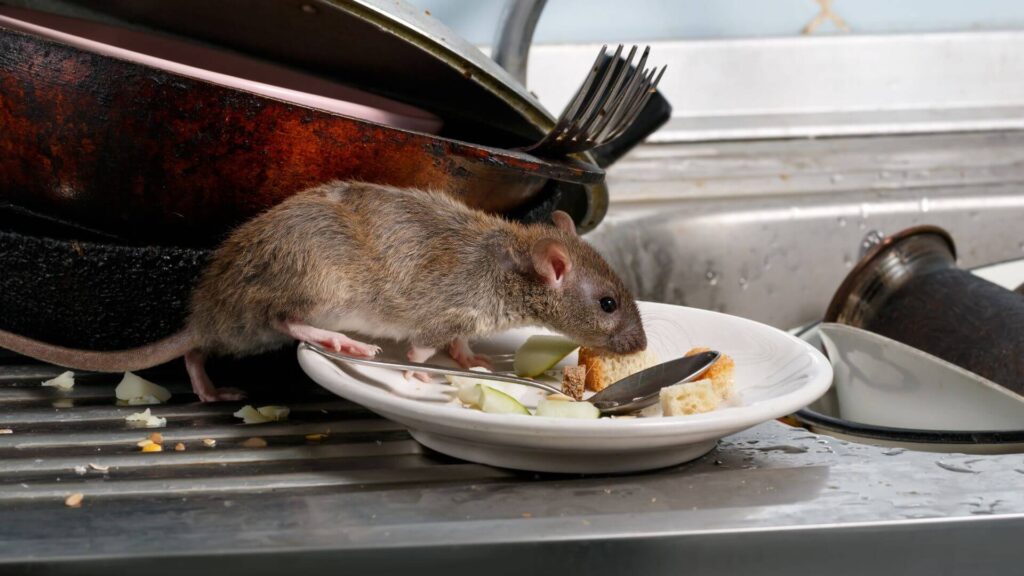
Overall, rodents can be a significant problem for both residential and commercial properties. Their ability to enter buildings through small openings, breed quickly, and cause damage and health hazards make them a serious concern. It is essential to take proactive measures to prevent and control rodent infestations.
Rodents can cause significant negative impacts, which is why controlling them is crucial for both residential and commercial properties. Here are some of the major negative impacts of rodents:
Structural damage: Rodents, particularly rats, can cause extensive damage to the structure of a building by chewing on walls, insulation, electrical wires, and pipes.
Health risks: Rodents can carry diseases that are harmful to humans and pets, including salmonella, hantavirus, and leptospirosis. Their droppings and urine can also trigger allergies and asthma.
Contamination: Rodents can contaminate food and surfaces with their droppings, urine, and hair, which can lead to food poisoning and other health issues.
Fire hazards: Rodents can chew through electrical wires, which can cause short circuits and even fires.
Damage to belongings: Rodents can chew through personal belongings such as clothing, furniture, and books, causing damage and loss.
Reputation damage: If rodents are spotted in a commercial property, it can damage the reputation of the business and deter customers from returning.
Financial losses: Rodent infestations can result in financial losses due to property damage, lost inventory, and decreased productivity.
It is important to address a rodent infestation promptly to avoid these negative impacts.
Here are a few general preventive measures to take from rodents:
Rodents such as rats and mice are a nuisance and can cause serious health problems if left unchecked. A rodent infestation can quickly spiral out of control, so it’s essential to take swift action. Here are some solutions and benefits of rodent control:
Trapping: One of the most effective ways to control rodent populations is through trapping. Traps can be placed in areas where rodents are known to travel, and once caught, they can be safely disposed of.
Poisoning: Poisoning is another effective method of controlling rodents, but it should only be done by professionals to ensure the safety of other animals and children.
Exclusion: Exclusion involves sealing off entry points where rodents can enter a building, preventing future infestations.
Sanitation: Proper sanitation can also help prevent rodent infestations. Keep food in sealed containers and clean up any spills or crumbs promptly.
Health Benefits: Rodent control can prevent the spread of diseases carried by rodents, including salmonella, hantavirus, and the plague.
Property Damage: Rodents can cause significant damage to property, including gnawing through wires, insulation, and wood. Rodent control can prevent expensive repairs.
Better Sleep: Rodents are nocturnal animals and are most active at night, which can disrupt sleep. Controlling rodent populations can lead to a better night’s sleep.
Improved Air Quality: Rodents can leave behind droppings and urine, which can contaminate the air and cause respiratory problems. Controlling rodent populations can lead to improved air quality.
Peace of Mind: A rodent infestation can be a stressful and unsettling experience. Rodent control can provide peace of mind, knowing that your home or business is safe and healthy.
Cost-Effective: Rodent control is a cost-effective solution to prevent damage and health problems associated with rodent infestations. Early detection and control can save money on costly repairs and medical bills.